In collaboration with Agricultural Master’s student Alina Haus, from the University of Göttingen in Germany, the SFA initiated a study around the winter preparation and feeding management of certified herder cooperatives. In the summer of 2022, low precipitation rates and the ongoing increase of inflation impeded the usual winter and feed preparation of herders, such as harvesting hay and purchasing concentrated feed. Therefore, this study was carried out to explore opportunities to improve support to affected households and improve the winter preparation for upcoming winters at the herder cooperative level.
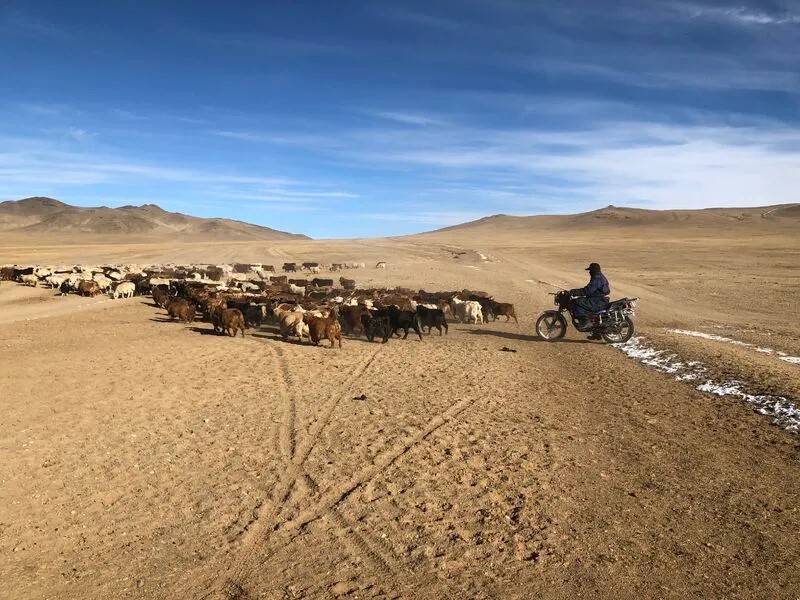
The study encompassed four cooperatives and their herder members across two study regions (Galuut Sum in Bayankhongor Aimag and Khulunbuir Sum in Dornod Aimag), who differed in the degradation status of the rangeland. In sum, a total of 21 households were interviewed, two focus group discussions were organized, and a total of 52 feed samples that were collected from state emergency fodder banks and herders were analyzed in the lab to assess the nutrient quality of the feed.
The interviews encompassed preferences for feeding and the quantities supplied, measures taken in advance to prepare for the winter (e. g., selling livestock before the winter, repair and insulation of the winter shed, etc.), as well as demographic aspects. During the focus group discussions, challenges and obstacles during the winter and feed preparations were discussed with herder cooperative leaders and members. Group work then followed to discuss and develop potential solutions at the cooperative level.

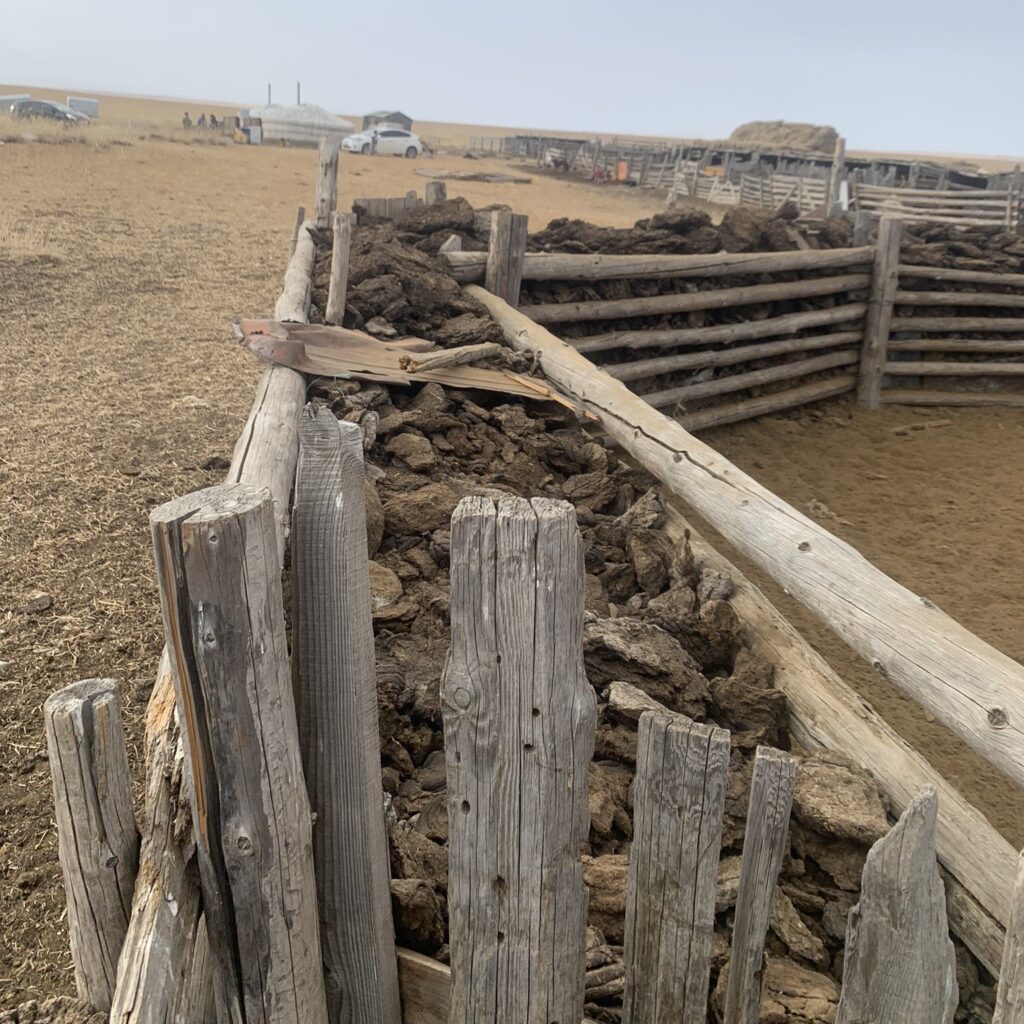
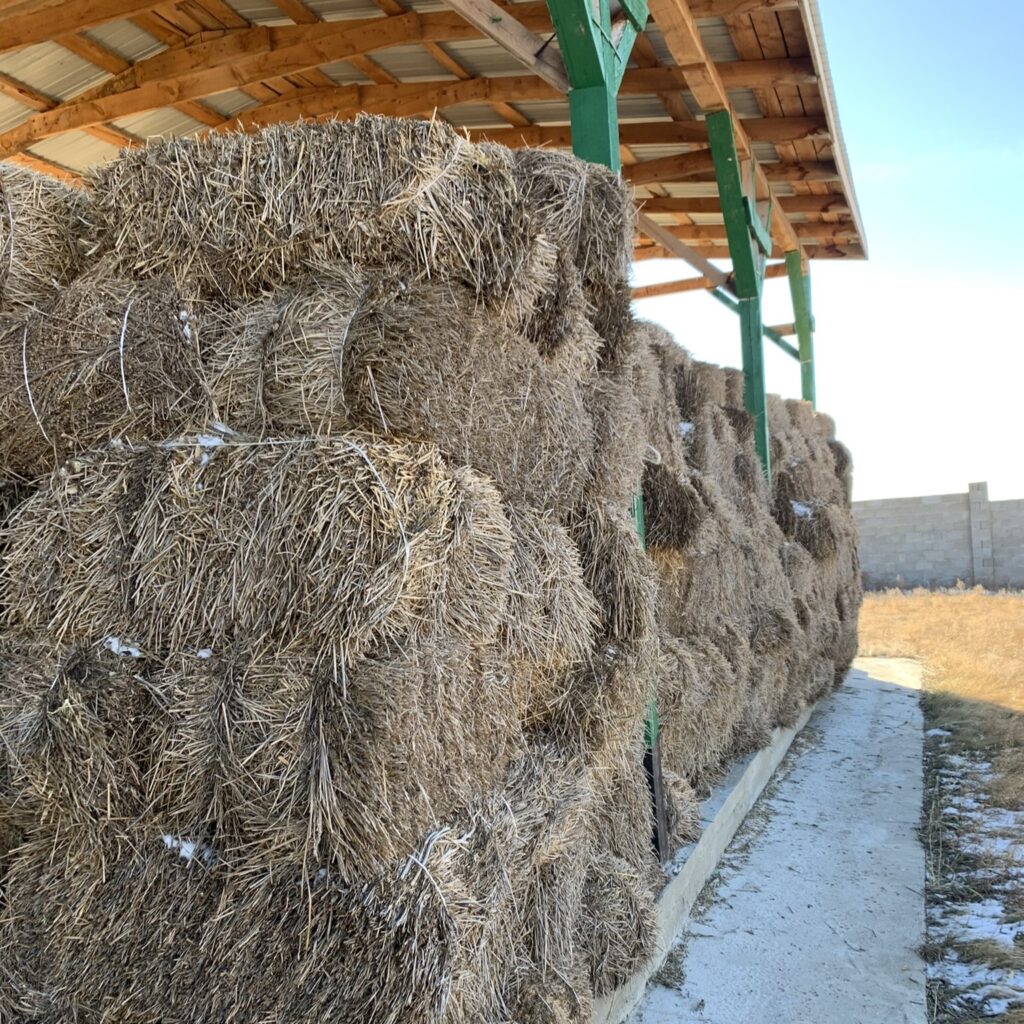
The results reveal that households in Galuut Sum faced great obstacles during the winter and feed preparation, and consequently prepared significantly less hay and other feeds than households in Khulunbuir Sum. Also, collaborative actions were implemented poorly on this site, while the cooperative leaders in Khulunbuir Sum organized communal haying events before the onset of the winter.
In Galuut Sum, financial resources for herders and cooperatives were not accessible, and the high prices for feed and fuel led to the reluctant purchase of feed during the winter. In contrast, sufficient pasture productivity in Khulunbuir Sum allowed herders to prepare in advance for winter challenges, and decent infrastructure enabled herders to acquire wheat bran as feed from local mill companies.
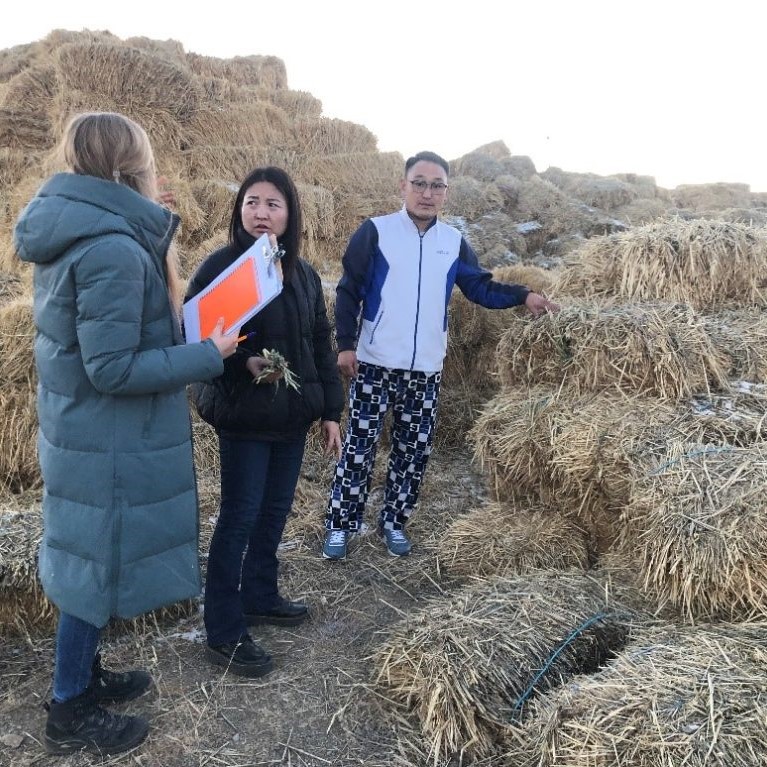
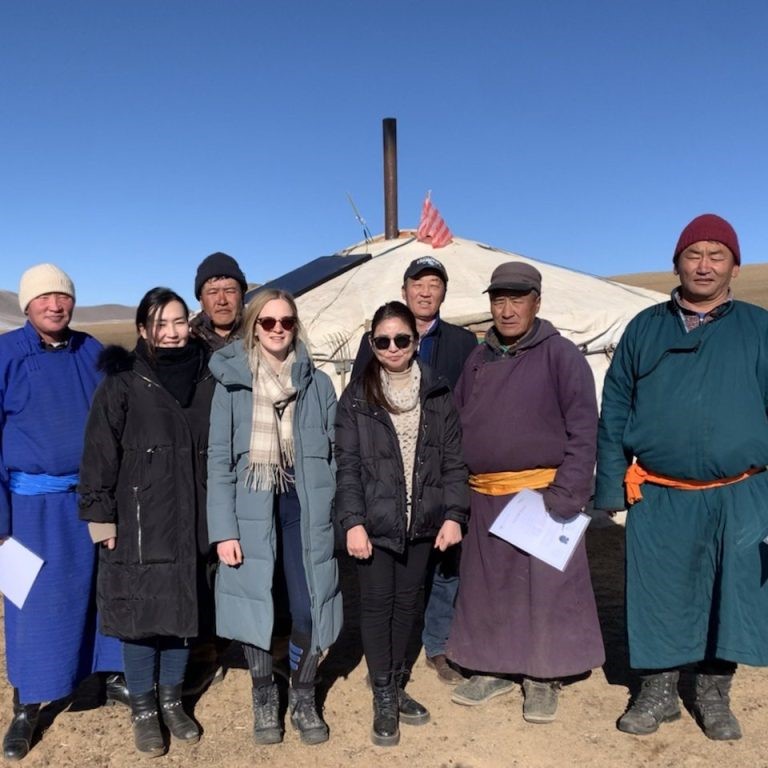
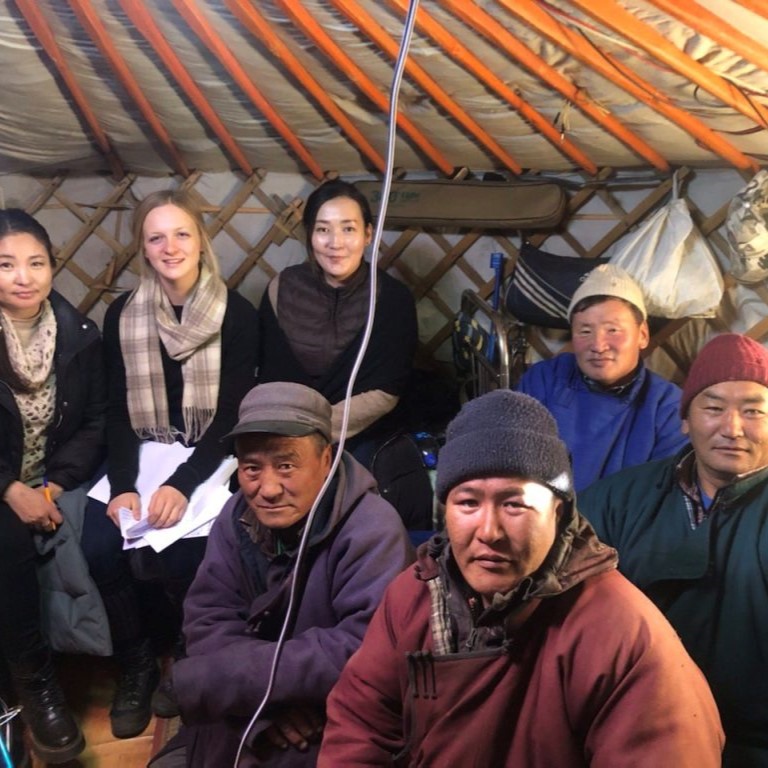
Finally, the discussions with cooperative leaders and herder members revealed great potential to provide support to herders at the cooperative level. For instance, feed bulk orders initiated by the cooperative leader could increase the herders’ leverage in pricing negotiations, and the communal installation of storage for meat and feed could reduce individual costs. Further, cooperative leaders are in charge for communicating the needs of their members to local government and administration to ensure local policies are being developed to support herders and cooperatives. Nevertheless, skills in organizational management and communication of the cooperative leader are prerequisites for the successful implementation of collaborative activities.
With the help of these outcomes, the SFA will provide support to those herders and cooperative leaders who need assistance in the feed acquisition and winter preparation to increase their resilience to future winter hazards and climate change, to strengthen their capacity to adapt and improve management to overcome natural disasters. The study researcher believes that supporting activities in this direction will undoubtedly be an important measure that will greatly encourage the sustainable operation of cooperatives in the longer term.

